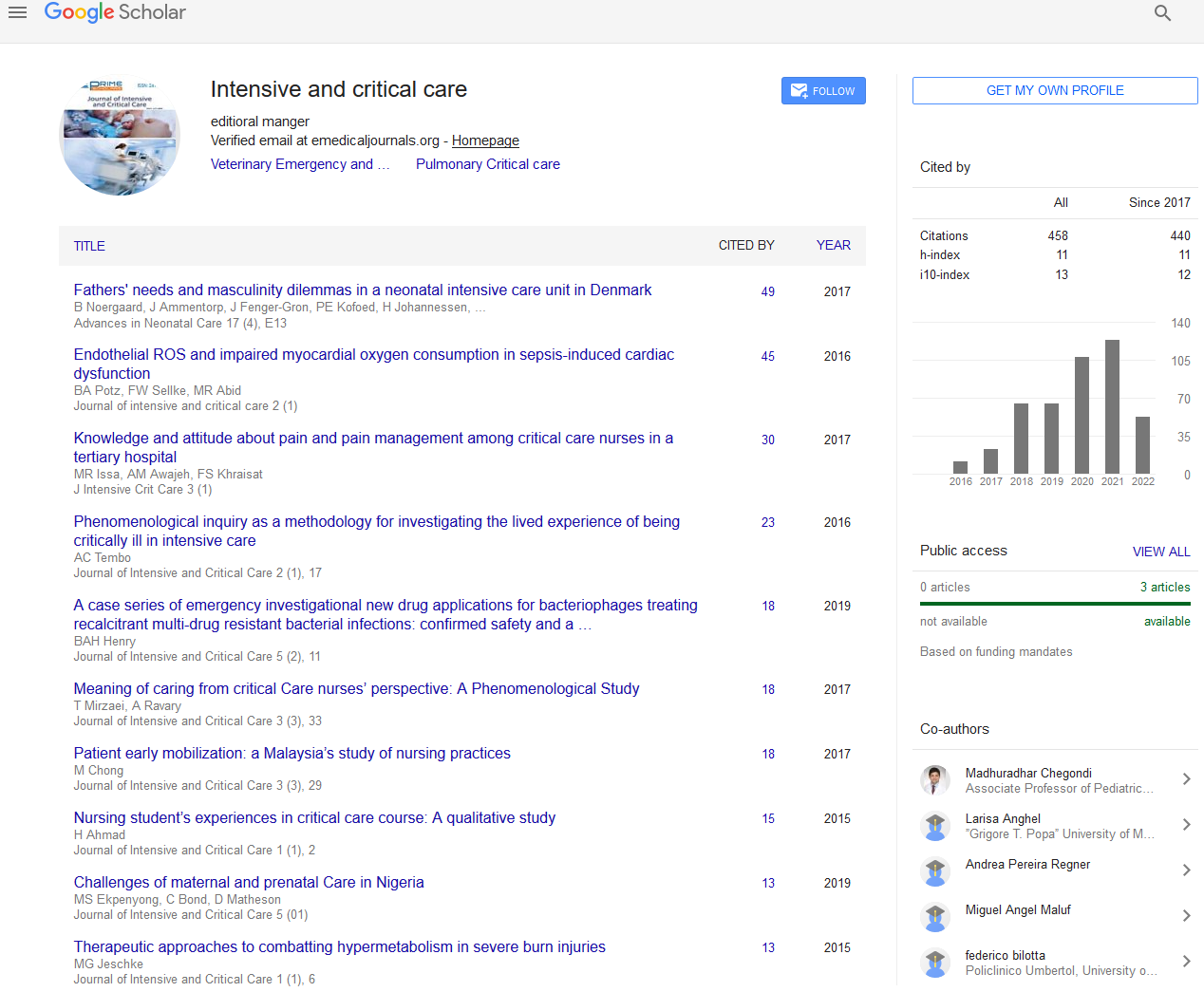Viroj Wiwankit*
Surindra Rajabhat University, Thailand
*Corresponding Author:
Viroj Wiwankit
Wiwanitkit House
Bangkhae, Bangkok
Thailand
E-mail: wviroj@yahoo.com
Received Date: November 26, 2016; Accepted Date: November 27, 2016; Published Date: November 30, 2016
Citation: Wiwankit V. Intensive Care and Concern for Zika Virus Infection. J Intensive & Crit Care 2016, 2:4.
In 2016, there is a new emerging viral infection, the Zika virus infection. This infection is an arboviral infection that becomes the big global problem. The infection can be seen in several tropical countries and extends to several non-tropical countries. The problem of acute febrile illness as other acute arboviral infection can be seen. The infection in the pregnant woman can result in unwanted fetal abnormalities [1].
Although most of infections are asymptomatic, some case can be serious and it might need an intensive care. The role of intensive care for the Zika virus infection is very interesting but limited mentioned in the literature. The practitioners in the field of intensive care have to get the knowledge on the clinical presentation of Zika virus infection and should not overlook and make an under diagnosis. Sometimes, there might be no symptom [2] but present as an occulted comorbidity and there can also be the atypical presentation as Guillain-Barré syndrome [3].
Finally, the prevention is the main concept. For the practitioners, prevention for themselves is needed. The basic mosquito control in hospital has to be done and the self-prevention against any possible mode of transmission of Zika virus (mosquito, sexual contact, etc.) is required.
References
- Yadav S, Rawal G, Baxi M (2016) Zika virus: An emergence of a new arbovirus. J Clin Diagn Res 10: DM01-DM03.
- Wiwanitkit S, Wiwanitkit V (2016) Afebrile, asymptomatic and non-thrombocytopenic Zika virus infection: Don't miss it! Asian Pac J Trop Med 9: 513.
- Thiery G, Valentino R, Meddhaoui H (2016) Zika virus-associated Guillain-Barré syndrome: A warning for critical care physicians. Intensive Care Med 42: 1485-1486.

